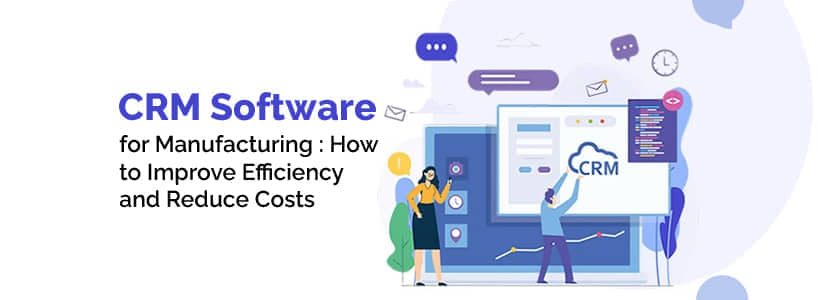In the competitive manufacturing landscape, efficiency and cost-effectiveness are paramount. Customer Relationship Management (CRM) Software, often overlooked in this sector, can be a powerful tool to achieve both. By implementing a robust CRM system, manufacturers can streamline operations, enhance customer relationships, and ultimately boost their bottom line.
Key Benefits of CRM for Manufacturers:
Improved Customer Relationships :
- Centralized Customer Data: A CRM system acts as a single source of truth for all customer interactions, including sales inquiries, orders, support tickets, and communication history. This ensures consistent and personalized experiences across all touchpoints.
- Enhanced Communication: Streamlined communication channels, such as email marketing and automated notifications, facilitate better interaction with customers and prospects.
- Targeted Marketing Campaigns: CRM enables segmentation of customer data, allowing for targeted marketing campaigns that resonate with specific customer needs and preferences. This increases the likelihood of conversions and reduces wasted marketing efforts.
Streamlined Operations:
- Automated Processes: Automating repetitive tasks like lead qualification, order processing, and invoicing frees up valuable time for sales and customer service teams to focus on more strategic activities.
- Improved Sales Forecasting: By analyzing historical sales data and current trends, CRM provides valuable insights into future sales performance. This enables manufacturers to make informed decisions about production planning, inventory management, and resource allocation.
- Improved Inventory Management: By tracking customer demand and order history, manufacturers can optimize inventory levels, reducing the risk of stockouts and overstocking.
- Reduced Costs:
- Increased Sales Efficiency: Streamlined sales processes and improved lead conversion rates directly translate to increased revenue and reduced sales costs.
- Reduced Customer Churn: By improving customer satisfaction and loyalty, CRM helps reduce customer churn, a significant cost driver for any business.
- Improved Resource Allocation: By analyzing data on customer behavior and sales trends, manufacturers can allocate resources more effectively, minimizing waste and maximizing ROI.
Choosing the Right CRM for Your Manufacturing Business:
Selecting the right CRM software requires careful consideration of your specific business needs and budget. Look for a solution that offers:
- Industry-Specific Features: Consider CRMs specifically designed for manufacturing, offering features like inventory management integration, production scheduling capabilities, and support for complex pricing structures.
- Strong Mobile Capabilities: Ensure the CRM system is accessible on mobile devices, enabling sales teams to stay connected with customers and access critical information while on the go.
- Robust Integrations: Choose a CRM that seamlessly integrates with other essential business systems, such as ERP, accounting software, and e-commerce platforms.
- Excellent Customer Support: Select a vendor that provides reliable and responsive customer support to assist with implementation, training, and ongoing maintenance.
By implementing a well-chosen CRM system, manufacturers can significantly improve their efficiency, reduce costs, and gain a competitive edge in the market.
